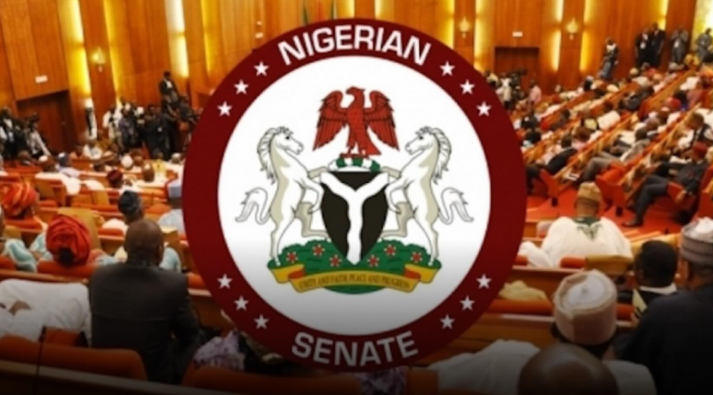

The fight to protect the legacy of late music star Ilerioluwa Promise Aloba, popularly known as Mohbad, has taken a decisive legal turn as his widow, Omowunmi Cynthia Aloba, formally moved to safeguard his estate from any unauthorized claims. In a development that has stirred public interest and sparked renewed conversations about the lingering controversies surrounding the singer’s death, Omowunmi has filed a legal notice at the Lagos State High Court in Ikeja, effectively blocking attempts by any individual or group to assume control of Mohbad’s estate without due process.
In a letter dated November 19, 2025, filed by the reputable law firm Salawu, Akingbolu & Co. and signed by legal practitioner I. P. Awo (Esq.), Omowunmi informed the Probate Registrar that she had submitted the essential Form 5 and Form 6 documents. These filings, according to her legal team, ensure that Letters of Administration—an official authorization required to manage the estate of a deceased person—are not wrongfully issued to anyone apart from the legitimate beneficiaries. Her proactive steps come after months of public debate, allegations, and counterclaims about who truly holds a legal stake in Mohbad’s estate and who has the right to oversee the management of his assets.
The filing explicitly identifies Omowunmi as Mohbad’s legal wife, a point that has been repeatedly contested in the court of public opinion but remains supported by legal documentation. She is also listed as the mother of Mohbad’s only surviving child, Master Liam Aloba, the toddler who has become the center of emotional and legal attention since the singer’s tragic passing. According to the documents submitted, Liam stands as the primary heir to the singer’s estate, which includes intellectual property rights, royalties, and personal assets accumulated over the course of Mohbad’s promising but painfully short career.
Omowunmi revealed that public notices affirming her move were published in two national newspapers in November 2025. These public disclosures served as an official announcement and warning that any attempts to claim Mohbad’s estate through covert or fraudulent means would face stiff legal resistance. Her legal team stressed that such public notices were necessary given the intensity of the controversies that have followed Mohbad’s death and the various groups and individuals who have, at different times, laid claims to his property, royalties, or parental rights over his son.
According to her legal representatives, the notice remains binding in court records and must be respected until the estate is fully and lawfully administered. They also voiced strong confidence that the judiciary would not permit any irregularities in processing the estate, especially with the deceased’s legal spouse and child still alive and recognized by law. This assertion appears to be a direct response to concerns raised by Mohbad’s fans and family loyalists who have speculated about possible manipulation or interference due to the high-profile nature of the case.
The legal battle surrounding Mohbad’s estate has intensified over time, fueled by the public scrutiny that followed his mysterious and widely mourned death in September 2023. The circumstances leading to his passing, the controversies about his relationship with his family, the paternity rumors that later emerged, and the continuous social media debates have created an atmosphere of tension that makes the administration of his estate even more delicate. For many of his supporters, Omowunmi’s latest action signals a strong effort to bring order, structure, and legitimacy to a process that has been rumored to be vulnerable to manipulation.
Observers note that filing for Letters of Administration is a critical step in Nigeria’s probate process, especially when a person dies without leaving a valid will. Without such letters, no individual—whether spouse, parent, sibling, or associate—has the legal authority to manage or distribute the deceased’s property. This makes Omowunmi’s application not only procedural but strategically essential, particularly in a case as sensitive as Mohbad’s, where multiple parties have shown interest in controlling his royalties, musical catalogs, and financial earnings.
In recent months, Mohbad’s music has continued to gain posthumous popularity, leading to increased streaming numbers, tribute concerts, and renewed global attention. This surge in commercial value makes his estate even more significant and vulnerable, especially as intellectual property rights can generate income for decades. Ensuring that these earnings are directed to the rightful beneficiaries—not opportunistic claimants—is at the heart of Omowunmi’s legal move.
Her position as the lawful wife has also been strengthened by earlier submissions made during the investigations into Mohbad’s death, where she was acknowledged as his spouse and the mother of his child. Although controversies have persisted on social media, the courts have consistently relied on documentary evidence, eyewitness testimonies, and legal declarations rather than public sentiment. For Omowunmi and her legal team, this clarity is enough to assert her standing as the primary custodian of Mohbad’s legacy.
Supporters of the late singer have also expressed relief at the development, noting that the absence of a clear administrator has allowed misinformation, conspiracy theories, and tension to fester. Many believe that establishing a legally recognized structure for the management of Mohbad’s estate could be a significant step toward resolving the disputes that have plagued his memory. Fans have taken to social media platforms to applaud Omowunmi for taking a firm stance in ensuring her son’s future remains secure and her late husband’s legacy remains untainted.
However, some critics argue that the legal process may become even more contentious as other interested parties might challenge the filings in court. Family disagreements over inheritance are not uncommon in Nigeria, especially involving high-earning public figures; therefore, legal analysts foresee the possibility of counter-applications, objections, or requests for joint administration from other relatives. Still, Omowunmi’s early filing gives her a strong legal advantage and positions her firmly at the center of any future discussions or rulings regarding the estate.
As the case unfolds, many Nigerians are watching closely, hoping for transparency, fairness, and a resolution that honors the memory of a young artist whose voice touched millions. For now, Mohbad’s widow has taken a significant step—not just to defend what legally belongs to her and her son, but to ensure that the legacy of one of Afrobeats’ most beloved rising stars is handled with the dignity, protection, and respect it deserves.


